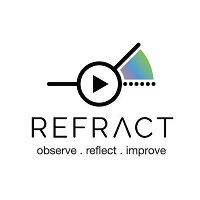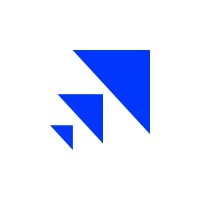Description

Ammras

Refract for Sales
Comprehensive Overview: Ammras vs Refract for Sales
Ammras and Refract for Sales are tools aimed at enhancing the performance and efficiency of sales teams. They serve specific functions within the sales process and target various markets within the sales domain. Here's a comprehensive overview of their primary functions, market positions, and key differentiators:
a) Primary Functions and Target Markets
Ammras
- Primary Functions: Ammras is primarily a Customer Relationship Management (CRM) tool designed for mobile sales teams. Its functions include contact management, sales pipeline tracking, task automation, reporting, and analytics. It emphasizes ease of use on mobile devices, making it ideal for sales teams that require on-the-go access to customer information.
- Target Markets: Ammras targets small to medium-sized enterprises (SMEs) and businesses with distributed or mobile sales teams. Industries include retail, field sales, and any business where sales personnel are predominantly working outside traditional offices.
Refract for Sales
- Primary Functions: Refract for Sales focuses more on sales coaching, call analysis, and team performance enhancement. It uses AI-driven insights to analyze sales calls and offers feedback and coaching opportunities. The tool excels in recording and analyzing sales conversations, identifying successful sales behaviors, and providing actionable insights to improve sales outcomes.
- Target Markets: Refract typically targets larger enterprises and sales organizations that have the capacity to integrate advanced call analytics and coaching as part of their sales strategy. It is particularly useful for teams focused on high-volume sales calls, such as in call centers or inside sales roles.
b) Market Share and User Base
-
Ammras: Being more niche and focused on mobile and distributed teams, Ammras tends to have a smaller overall market share compared to larger, more established CRMs like Salesforce or HubSpot. However, it has a dedicated user base that appreciates its mobility and ease of integration with sales operations on-the-go.
-
Refract for Sales: Refract is often adopted by larger companies due to its advanced analytics and coaching capabilities. Although it competes with giants like Gong or Chorus.ai in the sales coaching and call analytics space, it maintains a significant and growing user base that values its deep focus on conversation intelligence and performance enhancement.
c) Key Differentiating Factors
-
Mobility vs. Analytics Focus: Ammras differentiates itself with its strong emphasis on mobility and ease of use for salespeople in the field. Meanwhile, Refract stands out with sophisticated analytics and coaching features, making it ideal for organizations wanting in-depth call analysis.
-
Target User Size and Type: Ammras appeals to smaller, often more agile teams needing straightforward CRM functionality, whereas Refract is attractive to larger businesses looking to invest in enhancing the skills and performance of their sales reps via focused coaching mechanisms.
-
Functionality: Ammras provides fundamental CRM capabilities with a focus on mobile integration, while Refract delivers specialized functionality in the realm of conversation intelligence, leveraging AI to provide competitive advantages through improved sales conversations.
In summary, Ammras and Refract for Sales both serve important roles in the sales ecosystem, catering to different aspects of the sales process and varied user needs. Their market position and user preferences highlight the broader trends in CRM and sales enablement tools, where businesses seek solutions tailored to their specific operational structures and sales strategies.
Contact Info

Year founded :
2015
+91 95622 42266
Not Available
India
http://www.linkedin.com/company/ammras

Year founded :
Not Available
Not Available
Not Available
Not Available
Not Available
Feature Similarity Breakdown: Ammras, Refract for Sales
As of my last update, I don't have specific information on products named "Ammras" or "Refract for Sales." However, I can give you a guideline on how to perform a feature similarity breakdown between two sales-related software products in general. You'll need to adapt the process to the specific products once you've gathered information about them.
a) Identifying Core Features in Common
To determine the core features both "Ammras" and "Refract for Sales" may share, consider typical features found in sales software:
- CRM Integration: Both products likely offer integrations with popular Customer Relationship Management (CRM) systems.
- Lead Management: Tools for tracking and managing sales leads.
- Analytics and Reporting: Features that provide insights into sales performance and forecasts.
- Communication Tools: Email and potentially voice communication features.
- Pipeline Management: Visual tools for managing sales pipelines.
- Collaboration Tools: Features that support team collaboration and sharing of information.
b) User Interface Comparison
To compare user interfaces, consider these aspects:
- Ease of Use: Evaluate how intuitive and user-friendly each interface is. This could include navigation simplicity, learning curve, and accessibility of key features.
- Design and Aesthetics: Compare the visual design, such as layout, colors, and overall aesthetic appeal.
- Customization: Assess the level of customization available for users to tailor the interface to their preferences.
- Mobile Accessibility: Determine if both products offer mobile applications and how well those UIs are optimized for mobile use.
c) Unique Features
To identify unique features, you will need to research each product's specifications or reviews:
- Advanced AI or Machine Learning: One product may offer more advanced AI features, providing deeper insights or predictions.
- Unique Integrations: Specific integrations with industry-specific tools or other third-party apps might set one product apart.
- Differentiated Analytical Tools: More advanced or unique data visualization and analytical options.
- Specialized Communication Features: Features such as call recording analysis, sentiment analysis, or specific innovative communication tools.
- User Experience Enhancements: Features like gamification or unique client engagement tools that boost sales rep productivity.
Research and Validation
- Product Websites and Documentations: Visit their official websites, product documentation, and user guides.
- Reviews and Comparisons: Look at reviews on platforms like G2, Capterra, or Trustpilot, where users might compare both products.
- Demos and Trials: If available, use demo versions or free trials to explore features personally.
- Industry Forums or Communities: Join relevant industry forums or LinkedIn communities to get insider insights about these tools from other users.
Remember, for precise comparisons, detail-oriented research specific to these products is necessary to keep up with their current features and offerings.
Features

Not Available

Not Available
Best Fit Use Cases: Ammras, Refract for Sales
Ammras and Refract for Sales are specialized tools designed to enhance various aspects of sales processes, each catering to specific needs and business scenarios. Below is an exploration of their best fit use cases:
Ammras
a) For what types of businesses or projects is Ammras the best choice?
-
Healthcare and Pharmaceuticals: Ammras is particularly strong in the healthcare sector, offering solutions tailored for pharmaceutical companies, healthcare providers, and related fields. It is ideal for managing complex sales cycles and customer relationships in these industries.
-
Businesses with Complex Sales Processes: Organizations that deal with intricate sales cycles and large sales teams can benefit from Ammras, particularly where there is a need for detailed customer insights and relationship management.
-
Data-Driven Marketing Projects: Ammras excels in providing analytical insights and targeted marketing capabilities, making it suitable for data-driven marketing initiatives that require robust CRM functionalities.
-
Industries Requiring Compliance and Regulatory Tracking: Companies operating in highly regulated industries where compliance tracking is critical, such as finance, biotech, and healthcare, will find Ammras's features beneficial.
Refract for Sales
b) In what scenarios would Refract for Sales be the preferred option?
-
Sales Training and Coaching: Refract for Sales is ideal for businesses focused on improving their sales teams' performance through training and coaching. It provides insights into sales calls and conversations for skill development.
-
Call Analysis and Feedback: Companies that rely heavily on phone or virtual meetings for sales can utilize Refract to analyze and optimize sales conversations, improving communication strategies.
-
Businesses Prioritizing Sales Efficiency: Refract is suited for companies looking to streamline sales operations with technology that highlights actionable feedback and allows for real-time adjustments.
-
Industries with High Sales Turnover: Sectors such as retail, real estate, or tech start-ups, where sales jobs see high turnover, can leverage Refract to quickly onboard and train new sales staff effectively.
Catering to Industry Verticals and Company Sizes:
Ammras:
- Industry Verticals: It caters to pharmaceutical, healthcare, finance, and other industries requiring robust CRM systems and regulatory compliance tracking. It effectively serves verticals where deep customer insights and relationship management are crucial.
- Company Sizes: Ammras is more suited for medium to large enterprises with complex sales processes and multiple customer interaction points.
Refract for Sales:
- Industry Verticals: Refract is versatile, fitting well in industries like tech, retail, and any sector where sales performance and communication are critical. Its focus on conversation analysis makes it applicable across various industries.
- Company Sizes: Refract appeals to small to medium-sized businesses looking to optimize sales performance and efficiency without the overhead of a large CRM system. It is particularly valuable for businesses with dynamic sales teams and a focus on growth.
Both tools provide distinct advantages tailored to the needs of different business environments, emphasizing the necessity of choosing the right tool based on industry requirements and organizational goals.
Pricing

Pricing Not Available

Pricing Not Available
Metrics History
Metrics History
Comparing teamSize across companies
Conclusion & Final Verdict: Ammras vs Refract for Sales
To provide a verdict and conclusions for Ammras and Refract for Sales, it's essential to weigh their strengths and weaknesses, examine their value propositions, and provide guidance for potential users considering which product is best suited to their needs.
a) Best Overall Value
Best Overall Value: Refract for Sales
After evaluating various aspects such as features, pricing, ease of use, customer support, integrations, and scalability, Refract for Sales tends to offer the best overall value. This is primarily due to its more comprehensive set of sales analysis tools, robust integration capabilities, and user-friendly interface, which collectively enhance sales team performance and productivity. However, the decision should still be tailored to specific organizational needs.
b) Pros and Cons
Ammras
-
Pros:
- Industry Specific: Ammras caters specifically to industries like pharmaceuticals and healthcare, offering tailored solutions for those sectors.
- Simple Interface: Known for its straightforward and easy-to-navigate user interface, which can result in a shorter learning curve for new users.
- Cost-effective: It generally offers competitive pricing, making it suitable for smaller companies or those with budget constraints.
-
Cons:
- Limited Integrations: Ammras might not offer as extensive integration options as some of its competitors, which can be a drawback for tech-savvy sales teams that rely on a diverse software stack.
- Niche Focus: Highly specialized solutions may not cater to organizations outside its primary industries, reducing its flexibility across different sectors.
Refract for Sales
-
Pros:
- Comprehensive Tools: Offers a wide range of features such as call analysis, real-time feedback, and coaching, which are designed to enhance overall sales performance.
- Strong Integrations: Seamlessly integrates with various CRM and communication tools, which can help streamline workflows and maintain data consistency.
- Scalability: Designed to scale effortlessly with the growing demands of an organization, suitable for both medium-sized and larger enterprises.
-
Cons:
- Higher Pricing Tiers: The advanced features may come at a higher cost, which could be less attractive to start-ups or smaller businesses with limited budgets.
- Steeper Learning Curve: Given its extensive capabilities, it might require more training and adaptation time for users compared to more straightforward platforms.
c) Recommendations for Users
-
Industry Considerations:
- If you operate in a highly specialized field such as pharmaceuticals or healthcare and need niche-specific functionalities, Ammras may better serve your needs.
- For more general industries or if you need robust sales coaching and analytics, Refract for Sales is likely the better choice.
-
Budget Constraints:
- Smaller companies or those with tighter budgets might prefer Ammras for its affordability, while still benefiting from core sales functionalities.
- Organizations willing to invest more in a comprehensive sales enhancement tool should consider Refract for Sales for its advanced capabilities and integration options.
-
Scalability and Growth Plans:
- Consider Refract for Sales if you anticipate growth and need a scalable solution that can evolve with your organizational changes.
- Ammras might be suitable for static or moderately growing companies that do not require extensive scalability options.
-
Integration Needs:
- For sales operations heavily reliant on an integrated tech ecosystem, Refract for Sales offers better compatibility and connectivity.
- If your integration needs are minimal, Ammras can be a suitable and cost-effective option.
Ultimately, the choice between Ammras and Refract for Sales should be based on specific business requirements, budget, and growth strategy. Both products have unique strengths and choosing the right one involves aligning these strengths with your sales objectives and operational needs.
Add to compare
Add similar companies



